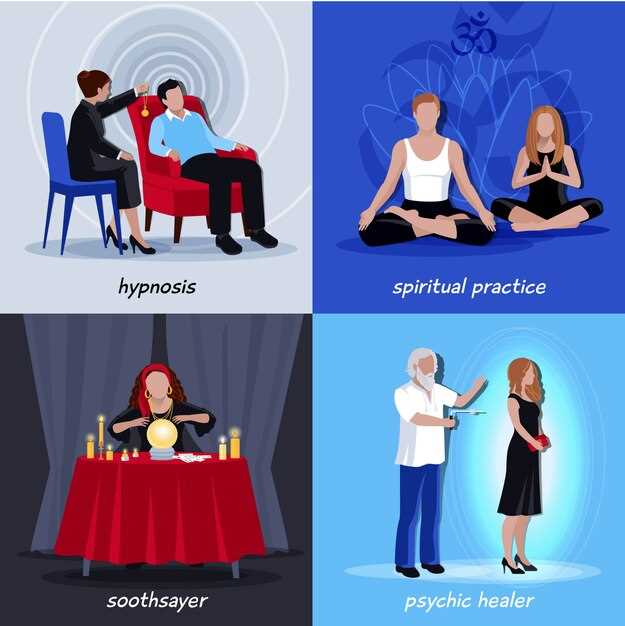
Begin with a 10-minute mindful check-in to observe mood, not react to it. This approach flows from evidence showing awareness cuts impulsive choices. Use a simple 0–10 scale to note energy, sleep, appetite; track status over weeks to see patterns. Many people report mood fluctuations during changes in status; awareness helps soften ambivalence, reduce loss. This process can ensure you stay aligned with what you value rather than chase quick validation on apps.
Choose concrete activities to fill silence. After work hours, join a class; take a walk; volunteer; these experiences boost mood, widen social circles, reduce loss. When you chose to shift patterns away from chasing status in apps, you gain mastery over daily life. Keep a simple log of experiences to document progress; this источник becomes evidence that change is possible.
Preserve healthy relationships by staying open to change. Regular check-ins among trusted friends provide a stable base; a świetny way to monitor ambivalence, mood shifts, fear of loss. A plan to stay connected reduces the lure of rushed commitments. If a social circle feels stale, leave a few apps; the point is to create ongoing connection beyond screens.
Focus on finding meaning in daily routine. A mindful approach means noticing what sustains you besides romance: hobbies, skill-building, volunteering. Researchers report that deliberate attention to values reduces ambivalence; it helps turn loss into a signal for change. What matters is consistency; a small, reliable practice each day builds resilience.
Reframe setbacks as data rather than failure. Each experience offers lessons: what you observed, what you chose, what you will adjust. Treat past relationships as sources of insight; they gave clues about preferences, boundaries, what you value in care. This mindset lowers self-judgment, keeps you moving toward meaningful connections.
Maintain a practical plan for daily vitality. Sleep, nutrition, movement matter; ensure regular meals, light exercise, sunlight. If you face ambivalence, schedule a weekly meetup; progress is often cumulative, not instant. The status you hold today is a point you chose; stay consistent yields growth, not abrupt life changes.
Practical, Actionable Guide for Singles
Begin with a concrete daily routine that prioritizes self-care and social connection. theres a simple truth: small, steady steps beat big, sporadic bursts. A thing to remember: your days stay steadier when you build a routine around three pillars: movement, learning, and contact with others. This approach has worked along years for many people, and it is designed to be sustainable rather than a quick fix.
Make a weekly plan with concrete targets: two 30-minute workouts, one learning block, and one check-in with a friend. The thing is to start small and stay consistent. If youre using apps to connect, pick 1-2 platforms and limit scrolling time to a maximum 20 minutes per day to avoid fatigue. Reach out to someone you havent spoken to in a while and offer a quick check-in; this creates opportunity to rebuild connection and support.
Build your support by inviting one friend to a regular activity, like a walk, a class, or a coffee. Been consistent with invitations matters: the more you make them happen, the more likely you are to maintain relationships long term. To ensure momentum, set a recurring plan for the same day each week and track what worked.
Use practical self-checks to monitor mood and energy. Check in each evening: what helped you today, what drained you, and what you want to do differently tomorrow. Stay curious about your feelings, and write 1-2 sentences in a short journal; this builds yourself resilience and gives you a reference for years to come.
Take on a small project that gives you a sense of purpose: volunteer, learn a skill, or mentor someone. This is an opportunity to meet new people, stay engaged, and build a steady source of value – istредничний источник of calm when days feel long.
Make sure to track progress toward your goals. Reached micro-milestones, like maintaining a habit for a full week, then celebrate with a simple reward. Youre making progress–and many years have shown that momentum grows when you keep showing up for yourself.
Label Emotions Quickly to Reduce Overwhelm
Label emotions within 5 seconds after they surface; choose just a one-word label such as sad, anxious, or frustrated.
This quick labeling reduces mental load; likely preventing escalation in tense moments; instead, it supports healthier reacting patterns.
Use a 3-step routine: name the feeling; assess its health impact; choose a next move that restores balance.
In a team context, labeling becomes a shared practice, redefining their status quo toward closure.
Here is a starter set of labels to begin with: fear, sadness, anger, anxiety, frustration, loneliness, relief, hope, excitement.
embrace their emotions; accepting the status; redefining balance; leaving behind patterns that harm health; this is a vital step.
Finding closure becomes likely; the label made space for a clearer next move; mood improves.
Rather than dwelling, leave behind leftovers; those patterns never serve.
Handle triggers here without stepping into overload.
Together this becomes a team practice; progress feels tangible.
| Emocje | Label | Quick Move |
|---|---|---|
| Fear | Fear | Name; 3 breaths; observe |
| Loneliness | Loneliness | Name; brief contact plan |
| Anger | Anger | Name; pause; reset pace |
| Hope | Hope | Name; breathe; reorient |
Build Daily Routines That Fight Loneliness
Schedule a 20-minute morning check-in to set balance as a theme for the day; note one specific area where you could grow; write a thought you want to reframe later.
- Morning check-in: set balance as a theme for the day; list one personal goal; choose a specific action; record a thought that could block connection; reframe it into a plan for a small interaction.
- Midday contact: reach out to one other person; propose a 10-minute chat; mention an experience you would be discussing.
- Evening reflection: recount three moments of happiness here; consider personal progress; discussing whether you want more support tomorrow.
- Weekly trips or experiences: schedule a brief outing in an area new to routine; choose something different; note what experiences moved you toward belonging; this can feel rewarding.
- Self care moment: allocate a cuddle by a pet or a hug from a friend; weave a ritual such as a warm drink, a short walk, or music that supports mood.
There is value in small steps; usually these routines become part of a whole that helps you feel less unable to connect; those small steps could transform private experiences into shared moments; you deserve happiness; these routines help you build balance in personal areas of life; a trusted source said small routines matter.
Remap Self-Worth Beyond Relationship Status
Make this one change today: think of your value as whole, independent of whether you’re dating or single. This awareness usually dissolves the habit of defining yourself by a partner’s presence. Here you start validating yourself through actions, not status.
If isolation hits, enter a small action that demonstrates capability: step into a new activity, start a project, or reconnect through someone you know in the community. Each stepping small shows you can build meaning without relying on others. You are not alone. This can be done together alongside a friend.
Prywatny postęp ma znaczenie; kiedy uczysz się nowych umiejętności, zamieniasz porażkę w informację zwrotną, udowadniając sobie, że masz znaczenie z powodów, które nie mają nic wspólnego z partnerem, ścieżką nauki. Twoja wartość opiera się na czymś więcej niż tylko jednej chwili; nie chodzi tylko o romans. Tutaj uczenie się jest stopniowym poszerzaniem poczucia własnej wartości.
Budowanie rutyny, która wzmacnia autonomię, pomaga poczuć się wolnym. Każdego dnia zrób coś namacalnego, co możesz wskazać jako dowód swoich możliwości; coś zbuduj, dokończ projekt lub rozwijaj swoje hobby. Wybierz tę ścieżkę; poczujesz się lepiej, zamiast gonić za zewnętrznymi pochwałami.
Jeśli gonisz za szacunkiem innych, ryzykujesz kruche poczucie własnej wartości. Zamiast tego, pielęgnuj standardy, które możesz sam spełnić. Rezultatem jest stała pewność siebie, która wzmacnia przyszłe relacje. O to chodzi: twoja wartość pochodzi z wnętrza, a nie z zewnętrznego potwierdzenia. Osoba, która szanuje twoją niezależność, przyciągnie właściwą uwagę.
Budowanie relacji to jeden wymiar, ale musisz także inwestować w więzi nieromantyczne. Spotkaj się z przyjacielem na kawę, trenuj grupę młodzieżową lub dołącz do jakiejś sprawy. Te kroki poprawiają twój nastrój; dają ci miarę inną niż status randkowy, dzięki czemu jesteś lepiej przygotowany na autentycznych partnerów, gdy się pojawią.
Tutaj możesz śledzić postępy: prowadź prosty dziennik trzech rzeczy każdego dnia – nauczenie się czegoś nowego, pomoc komuś lub wkroczenie w nowe środowisko. Z czasem zauważysz, że twoja wartość własna nie jest powiązana z pojedynczym wynikiem ani relacją.
Bycie singlem to faza, nie wyrok. Skup się na budowaniu sensu w pracy, kreatywności, służbie; zmierzasz ku wolności, która czyni cię bardziej odpornym w każdym związku, który wybierzesz później. Potrzebne zasoby to czas, cierpliwość, wsparcie.
Użyj wyzwania szybkiego myślenia, aby zmienić perspektywę odrzucenia

Rozpoczynając to szybkie wyzwanie myślowe, omawiamy negatywne uczucia wywołane odrzuceniem, które nie pozwalają im zdefiniować swojego poglądu. Jakie są dowody wspierające to przekonanie; jakie pojawiają się sprzeczności? Spójrz na dwa fakty z ostatnich interakcji, które przeczą ich przekonaniu, a następnie zanotuj je tutaj.
Nigdy nie pozwól, by ta sprawa się przedłużała: napisz dwa krótkie oświadczenia, które zmienią perspektywę sceny. Być może źle odczytano punkt centralny, być może przegapiony sygnał staje się wskazówką do nauki. Poszukaj drobnych zmian, a następnie przenieś je na proste działanie, które było pomocne w codziennych interakcjach, tylko dwa punkty.
W czasach izolacji angażujące ćwiczenia pomagają leczyć. Spójrz na myśli jak na mijającą pogodę; trwają chwilę, a potem mijają. Przeformułowanie zmienia sposób, w jaki wyglądają interakcje, a nastrój stabilizuje się poprzez praktykę, przynosząc szybkie zwycięstwa.
Angażujące zasoby obejmują książki, wiarygodne źródła, zaufanych rówieśników; to utrzymuje cię na ziemi tu i tam. Prześledź источник przekonania do konkretnego zdarzenia – być może trudnej interakcji, wspomnienia z podróży lub uwagi od rówieśnika; następnie zmień znaczenie, które przypisujesz.
Poszerz swój krąg znajomych za pomocą małych, realistycznych kroków

Zaproś jedną osobę na 30-minutowy spacer w tym tygodniu. Zobaczysz niewielką zmianę nastroju, wzrost pewności siebie w kontaktach towarzyskich, poczucie możliwości, które napędza przyszłe plany. Skoncentruj się na stałym tempie; każdy krok pomaga ci poczuć się kompetentnym, aby pomóc zmniejszyć uczucie izolacji.
- Decyzja: wybierz jeden mikrocel na każdy tydzień; opcje obejmują spotkanie, prelekcję w bibliotece, sesję klubu książki.
- Krok 2: Skoncentruj się na słuchaniu; sformułuj jedno otwarte pytanie o ulubioną książkę lub hobby.
- Krok 3: Wejście w przestrzeń wspólną: dołącz do lokalnej drużyny, projektu wolontariackiego lub warsztatów.
- Krok 4: Stwórz prostą rutynę kalendarza: uczestnicz w dwóch wydarzeniach o niskim poziomie presji miesięcznie; notuj tematy, które wzbudzają zainteresowanie; zapisuj uczucia, czego się nauczyłeś.
- Krok 5: Zbuduj wokół siebie zespół; skontaktuj się z kilkoma osobami, zaproponuj wspólne działanie, wybieraj przestrzenie, w których czujesz się komfortowo.
Być może problemy społeczne kształtują wybory; akceptacja straty, żal wypływają na powierzchnię, gdy zmienia się towarzystwo. Sens wynika ze znajdowania małych momentów połączenia. Nie jesteś sam; sam sobie przypominam, że postępy opierają się na krokach, a nie na skokach. Osiągając kamienie milowe, zaczynasz czuć się bardziej kompetentny, bardziej biegły w znajdowaniu sensu w codziennych rzeczach. Stopniowe kroki doprowadziły do trwałej zmiany nastroju; relacje się rozwijają. Skupienie się na tym, co działa, pomaga ci iść naprzód. Czytanie książek na tematy, które lubisz, wspiera sensowne rozmowy wśród osób, które spotykasz.











